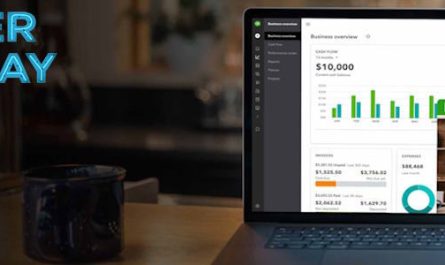Save Money and Stop Buying Premium Gasoline
Feeling the pinch of soaring gas prices? Want to save 20 to 50 cents or more per gallon? Here’s a quick and savvy solution: ditch the premium gasoline and switch to regular. But, you might wonder, is it safe? Will it harm your engine?
Enough is enough, folks! American drivers threw away billions of dollars last year on premium gas, all while their vehicles were perfectly content running on regular, as revealed by a recent study conducted by AAA, the nation’s go-to for motorist advocacy and travel insights.
The allure of the “premium” label at the pump can be deceiving, as many experts in automotive engineering and repair, points out. “Premium gasoline is higher octane, not higher quality,”, urging drivers to stick to their vehicle owner’s manual recommendations for fuel.
Here’s the breakdown: 70 percent of U.S. drivers own vehicles that run perfectly fine on regular gas, while only 16 percent drive cars that demand premium fuel. AAA’s researchers meticulously tested V-8, V-6, and I4 engines designed for regular gas, finding no discernible benefit – no extra oomph in horsepower, no fuel efficiency boost, and no improvement in emissions – from using premium-grade fuel.
The key for drivers lies in understanding whether their car requires premium gas or merely recommends it. Modern vehicles, thanks to advancements in engine technology, can generally run on regular gas without any damage, even if the owner’s manual suggests premium. The only minor downside might be a slight dip in performance – perhaps a half-second slower from 0 to 60 mph. Yet, for the average driver, this dip is unlikely to be noticeable.
In the past, drivers opted for a tank of premium gas occasionally to clean their engines. This was because premium gas used to contain more detergents and additives to combat carbon deposits. However, due to government regulations targeting emissions reduction, most major gasoline brands now include ample additives across all grades to protect engines and reduce pollution.
Now, let’s delve into why the shift to lower-octane fuel is unlikely to harm your car:
Premium gas boasts a higher octane rating, crucial in preventing engine knock or “pinging.” This rating can vary between 90, 91, or even 94 octane, depending on your location. The higher cost of premium is attributed to the complex refining process involving the addition of an expensive substance called alkylate to boost the octane rating and minimize knock.
Engine knock occurs during the combustion process when the unburned fuel-air mixture ignites uncontrollably due to compression and heating. High-octane gasoline can withstand greater compression and heating without self-igniting, a trait exploited in high-performance engines that demand premium fuel.
In the past, engines struggled with fuels of varying octane ratings, risking knock and potential damage. However, contemporary engine control systems can adapt to lower octane by adjusting ignition timing to prevent knocking. This sophisticated electronic capability allows engines to dynamically tune themselves, giving drivers more flexibility in choosing a safe fuel grade.
Compared to premium gas, lower-octane fuels restrict the engine’s ability to advance ignition during rapid acceleration. More ignition advance allows for more power and quicker acceleration, a difference that’s particularly noticeable in turbocharged gasoline engines. However, the performance gap becomes evident mainly during aggressive driving, such as rapid acceleration from a standstill or quick lane changes at highway speeds. If you adopt a moderate driving style, the power loss may go unnoticed, whether you opt for premium or regular-grade fuel. So, why pay more when you can enjoy a smoother ride with regular gas?
To sum it up, if your car doesn’t demand premium, save your hard-earned dollars. The auto experts suggest focusing on top-tier gasoline rather than going for higher octane. And as a reminder, the price difference between regular and premium is no small change.
Premium gas doesn’t necessarily clean your engine better than regular gas. Both types contain detergents and additives. While premium fuel historically had more, government regulations now mandate sufficient additives in all grades, ensuring effective engine cleaning. Regular maintenance and periodic use of fuel system cleaners are more impactful for engine cleanliness.
Putting premium gas in a car that doesn’t require it isn’t necessarily bad, but it’s often unnecessary and can be a waste of money. If your vehicle is designed for regular gas and doesn’t explicitly call for premium, the higher octane rating in premium fuel may offer no tangible benefits. Modern engines with adaptive control systems can typically adjust to lower-octane fuel without causing damage. While premium gas might prevent engine knock, it won’t significantly enhance performance or fuel efficiency in vehicles designed for regular fuel. In essence, it won’t harm your car, but it might hurt your wallet without delivering any noticeable advantages. Checking your vehicle’s manual for fuel recommendations is a practical approach to avoid unnecessary expenses at the gas pump.
What gas station has the best quality gas?
Identify top-quality gasoline by looking for a small green sticker on the pump labeled “TOP TIER Detergent Gasoline.” The leading stations offering Top Tier gasoline in the U.S. include 76, Aloha Petroleum, Arco, Beacon, Breakaway, Cenex, Chevron, Citgo, Conoco, Costco, CountryMark, Diamond Shamrock, Express Mart, Exxon, Fast Fuel, GetGo, HFN, Harmons Fuel Stop, Hele, Holiday, Kwik Star, Kwik Trip, Marathon, Meijer, Metro Petro, Mobil, Ohana Fuels, Phillips 66, QT/Quik Trip, Reeders.
Wondering if premium gas is a ripoff? In many cases, yes. Unless your vehicle’s manual explicitly recommends it, shelling out for premium gas won’t provide significant benefits. Premium fuel’s higher octane rating, designed to prevent engine knock, is often unnecessary for modern engines with adaptive control systems. While premium gas may promise better performance and cleaner combustion, the reality is that regular gas is typically sufficient for most vehicles, saving you money at the pump. With advances in engine technology and additives in standard gasoline, the alleged perks of premium fuel often don’t justify the extra cost. In essence, unless your car demands it, opting for premium gas might be more about burning cash than optimizing performance.
Using premium gas won’t necessarily make your car last longer. While premium fuel can prevent engine knock in high-performance vehicles designed for it, most cars run efficiently on regular gas. Modern engines and advanced control systems adapt to various octane levels, and using premium in a car designed for regular won’t provide substantial longevity benefits. Regular maintenance, driving habits, and adherence to the manufacturer’s recommendations play more significant roles in a vehicle’s lifespan than the type of gas used. Therefore, for most standard vehicles, sticking to the recommended fuel grade and routine maintenance remains key to optimal longevity.
Putting 87 octane (regular) gas in a car designed for premium fuel can cause engine knocking and reduced performance. Premium-only cars often have higher compression ratios, requiring the higher octane rating to prevent premature ignition. Using a lower octane fuel may lead to inefficient combustion, negatively impacting the engine’s performance and potentially causing long-term damage. While an occasional use of regular gas might not cause immediate harm, it’s best to follow the manufacturer’s recommendation for premium fuel to maintain optimal engine function and prevent potential issues over time.
Buying Guides: Saving Tips & TricksBOGO Promotions: Buy One, Get One Free Deals
Vacuum Cleaners Buying Guide
Smart TV buying guide
Your Ultimate Telescope Buyer’s Guide
Laptop Buying Guide
Car Rental Tips
Costco Car Rental: Is it Really a Good Deal?
How to save money on Auto Insurance
Save Money and Stop Buying Premium Gasoline





